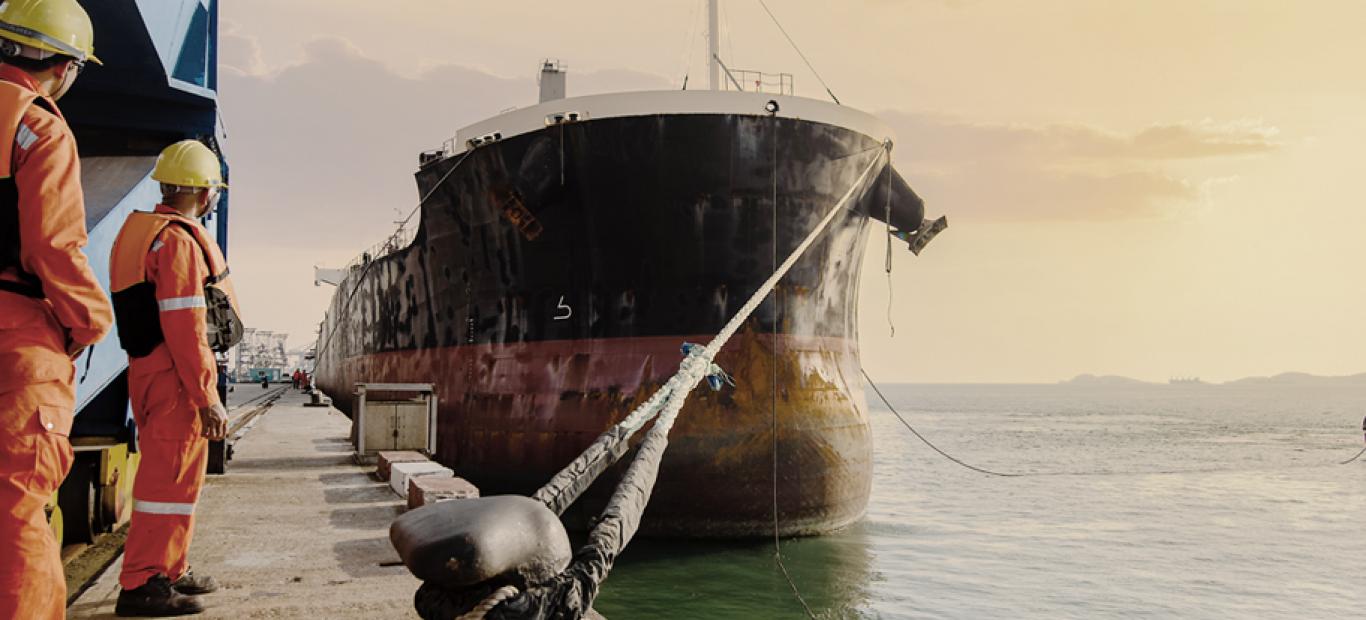Part I - Protection for Shipping Companies from the Impact of COVID-19
Quoting from the previous article, COVID-19 had a major impact on the Shipping Industry. About 100 more international shipping routes have been cancelled due to COVID-19. The cancellation was carried out due to the low demand for commodity transportation and the existence of port restrictions. Restrictions imposed at ports such as China, Japan, the United States, Singapore, Australia, Turkey etc. as a measure to prevent the spread of COVID-19. This restriction will clearly have an impact on shipping operations
Screening procedures are carried out in all ports of the world to narrow the spread of COVID-19. How about ports in Indonesia? Export and import activities at Tanjung Priok Port are still ongoing, however the port authority has carried out COVID-19 preparation and prevention procedures. The screening procedure is carried out by the Port Health Office for all foreign ship crews that are about to dock at Tanjung Priok. The screening procedure is not only carried out for China-originated vessels, but also for all foreign vessels. The crew-change process is also closely monitored and must be approved by the Port Health Authority. The agent of foreign ships is also required to submit a letter signed by the captain stating that no crew member has pneumonia, and the statement must be submitted at least 48 hours before the ship is about to dock.
In some countries, ship captains are required to fill out a special questionnaire related to COVID-19 prevention, in which there are questions about travel schedules and contacts that have been made by crew members. The captain is also required to carry out daily crew health checks, check body temperature and respiratory symptoms. Between one port and another port sometimes requires different documents related to COVID-19 prevention efforts, but overall it requires these related declarations:
1. Declaration of crew health
2. Measuring crew temperature
3. Information about sick crew or that has died
4. Information about previous port calls
5. Information about crew travel history
IMO (International Maritime Organization), which is an agency responsible for international shipping security and safety, has collaborated with WHO and DHMOSH, the United Nations in taking a stand on the emergence of COVID-19. IMO has published Circular Letter No.4204/Add.1-5. So far, IMO has taken steps to prevent the spread of the corona virus from spreading. This precaution is to ensure that world ports and shipping can continue to operate
So far the loading and unloading operations at the port still run normally, but the COVID-19 prevention procedures carried out will result in delays in service at the port which will also result in shipping delays. Shipping companies have had a huge impact on the emergence of this COVID-19. The spread of Corona will very clearly threaten the health of the crew. Also, delays in shipping and even not allowing the ship to dock will threaten the cargo carried by the ship. Several cases have emerged as a result of this COVID-19, where the ship was refused to lean because the crew had symptoms of COVID-19. This case occurred in the Port of Halifax, Canada. The Siem Cicero, the flagship of the liberty, departed from Germany on March 9th with a cargo of automotives and was supposed to arrive in Halifax on March 20th. However, on March 17th, the PHA (Public Health Agency) Canada stated that several crew members had symptoms of COVID-19. Therefore, the ship was not allowed to dock at Halifax. The ship's agent and crew have been informed that the ship will not be allowed to enter port until 14 days after the last date that symptoms appear on the crew. Just imagine, the 14 days the ship is waiting for permission to dock, how much is the additional cost incurred by the company for operating the ship for 14 days, logistics costs, bunkers, and medical expenses for the crew, while fortunately the cargo carried is not easily damaged. Shipping companies are currently thinking hard to overcome the threat of COVID-19 to their crews and indirectly also threaten the cargo they carry.
Apart from this incident, there have been many other incidents, such as cruise ships whose passengers were not allowed to get off the ship and had to be quarantined due to the presence of passengers who had contracted COVID-19. This is what happened on the Cruise Ship Diamond Princess, Golden Princess, and Silver Shadow. The worst incident was at Diamond Princess, 700 passengers were infected with COVID-19 and 7 passengers died. The ship quarantine had been running for weeks in the Port of Yokohama, Japan, until finally the passengers and crew of the Diamond Princess ship were rescued by their respective countries. Even today, many countries do not accept cruise ships to dock. As experienced by the Norwegian Jewel Cruise Ship, the ship was rejected to dock in French Polynesia, New Zealand and Australia, even though there were no passengers suspected or confirmed to have COVID-19 on the ship. Currently, Cruise Ship Companies such as Princess Cruises, Norwegian Cruises and Fred Olsen Cruises have suspended their cruise operations. With such conditions, where COVID-19 spreads very quickly from one person to another, it is necessary to stop cruise ship operations. In one hand, many countries have refused the arrival of the cruise ship. As for cargo ships, so far they are still allowed to operate, because cargo ships are still very much needed to distribute goods from one country to another, provided that they have to carry out procedures set by each port.
The problems experienced by these shipping companies in dealing with the problem of the COVID-19 virus outbreak results in unexpected financial losses. Additional costs such as crew wages, additional fuel costs, additional costs for food, water, medicine, etc. are costs that must be borne by the shipping company. To avoid unexpected things as previously mentioned, shipping companies should not have to worry because there are insurance products that can protect against these unexpected costs, namely the Protection and Indemnity policy or more commonly called P&I. This policy generally provides protection for ship owners, ship operators and charterers for any losses arising from third party claims due to ship operations. But not only that, this policy also covers other unexpected additional costs in accordance with the provisions of the policy.
Therefore, learning from this pandemic outbreak, shipping companies should protect themselves by buying a P&I insurance policy so as not to experience large financial losses. How can P&I insurance policy or Protection & Indemnity Insurance Policy protect shipping companies from financial loss? Keep informed in our next article.
Reference :
https://globalnews.ca/news/6761227/cargo-ship-denied-entry-to-port-of-halifax/
Institute Protection and Indemnity Clauses Hulls – Time, MAR Policy CL. 344
Protection & Indemnity, Marine Liability, Protection and Legal Expenses Terms & Conditions, British Marine.
Author





 8530
8530



 06 Aug 2021
06 Aug 2021 11049 kali
11049 kali





